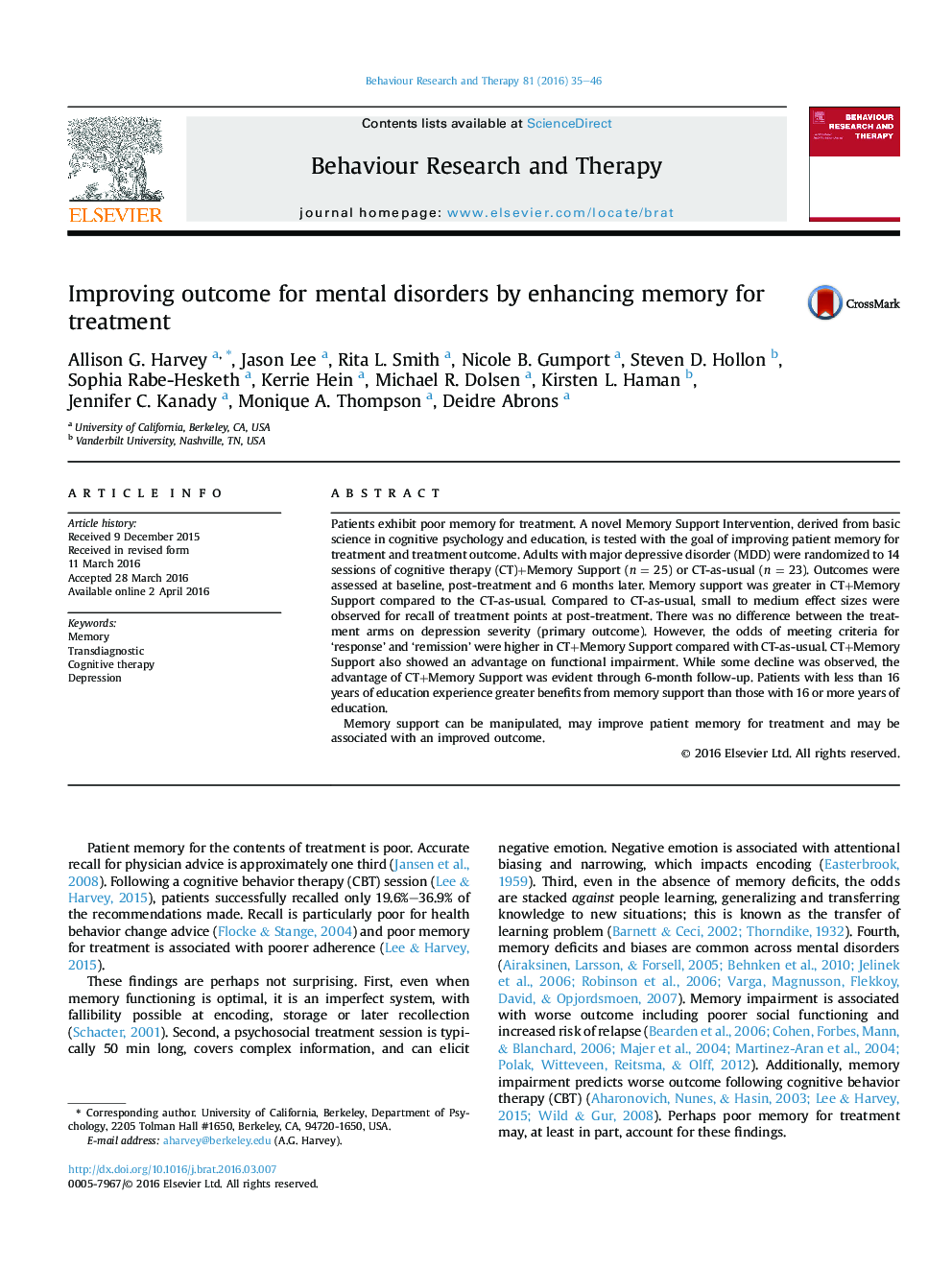| Article ID | Journal | Published Year | Pages | File Type |
|---|---|---|---|---|
| 901749 | Behaviour Research and Therapy | 2016 | 12 Pages |
•Mental disorders are highly prevalent and accessing adequate treatment is difficult.•Evidence-based psychological treatments (EBPTs) are highly effective.•Barriers and solutions to accessing EBTs are discussed at five levels of analysis.•There is a need to continue to work toward innovation in treatment development.•There is a need to help patients identify EBPT providers and train more providers.
Patients exhibit poor memory for treatment. A novel Memory Support Intervention, derived from basic science in cognitive psychology and education, is tested with the goal of improving patient memory for treatment and treatment outcome. Adults with major depressive disorder (MDD) were randomized to 14 sessions of cognitive therapy (CT)+Memory Support (n = 25) or CT-as-usual (n = 23). Outcomes were assessed at baseline, post-treatment and 6 months later. Memory support was greater in CT+Memory Support compared to the CT-as-usual. Compared to CT-as-usual, small to medium effect sizes were observed for recall of treatment points at post-treatment. There was no difference between the treatment arms on depression severity (primary outcome). However, the odds of meeting criteria for ‘response’ and ‘remission’ were higher in CT+Memory Support compared with CT-as-usual. CT+Memory Support also showed an advantage on functional impairment. While some decline was observed, the advantage of CT+Memory Support was evident through 6-month follow-up. Patients with less than 16 years of education experience greater benefits from memory support than those with 16 or more years of education.Memory support can be manipulated, may improve patient memory for treatment and may be associated with an improved outcome.
